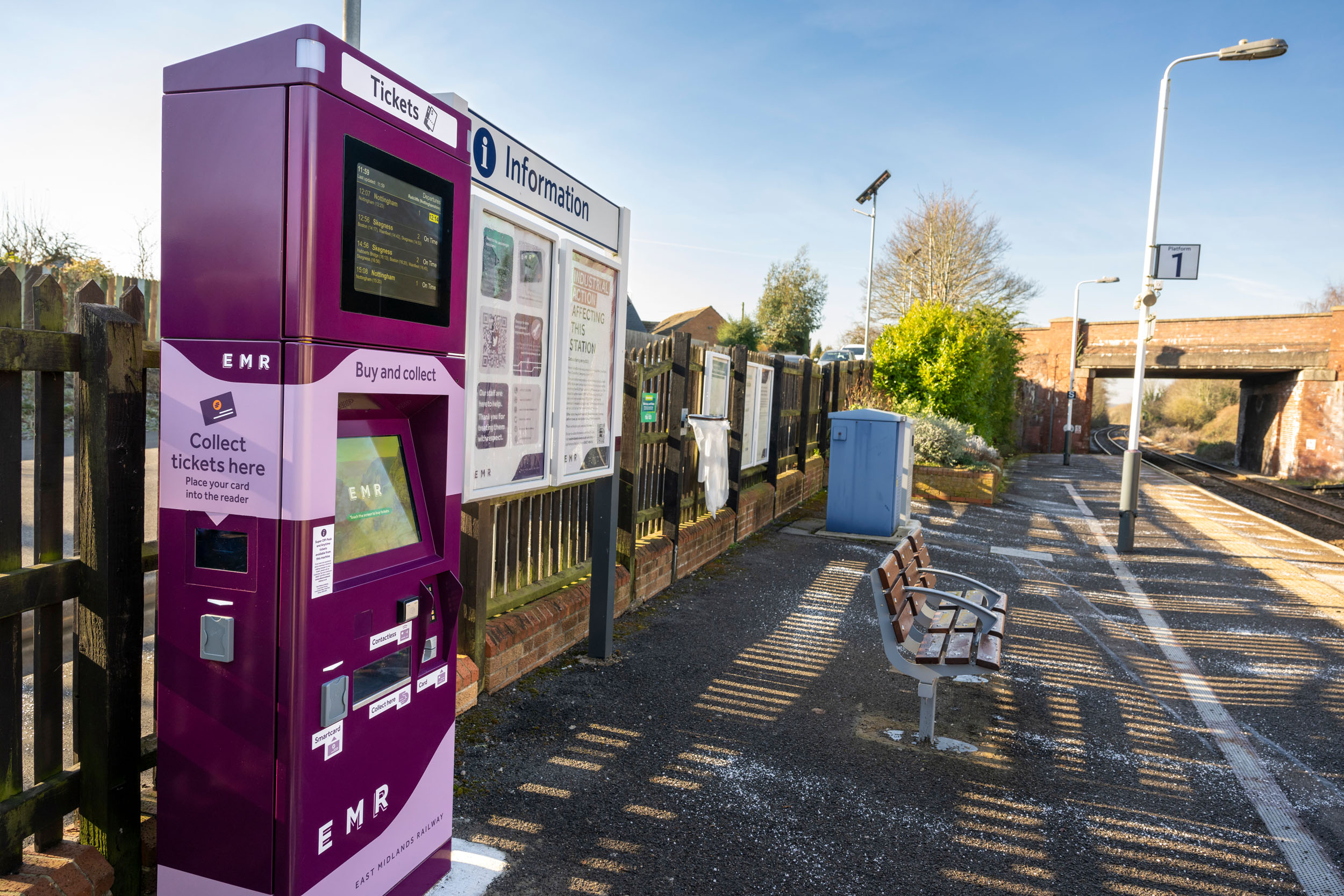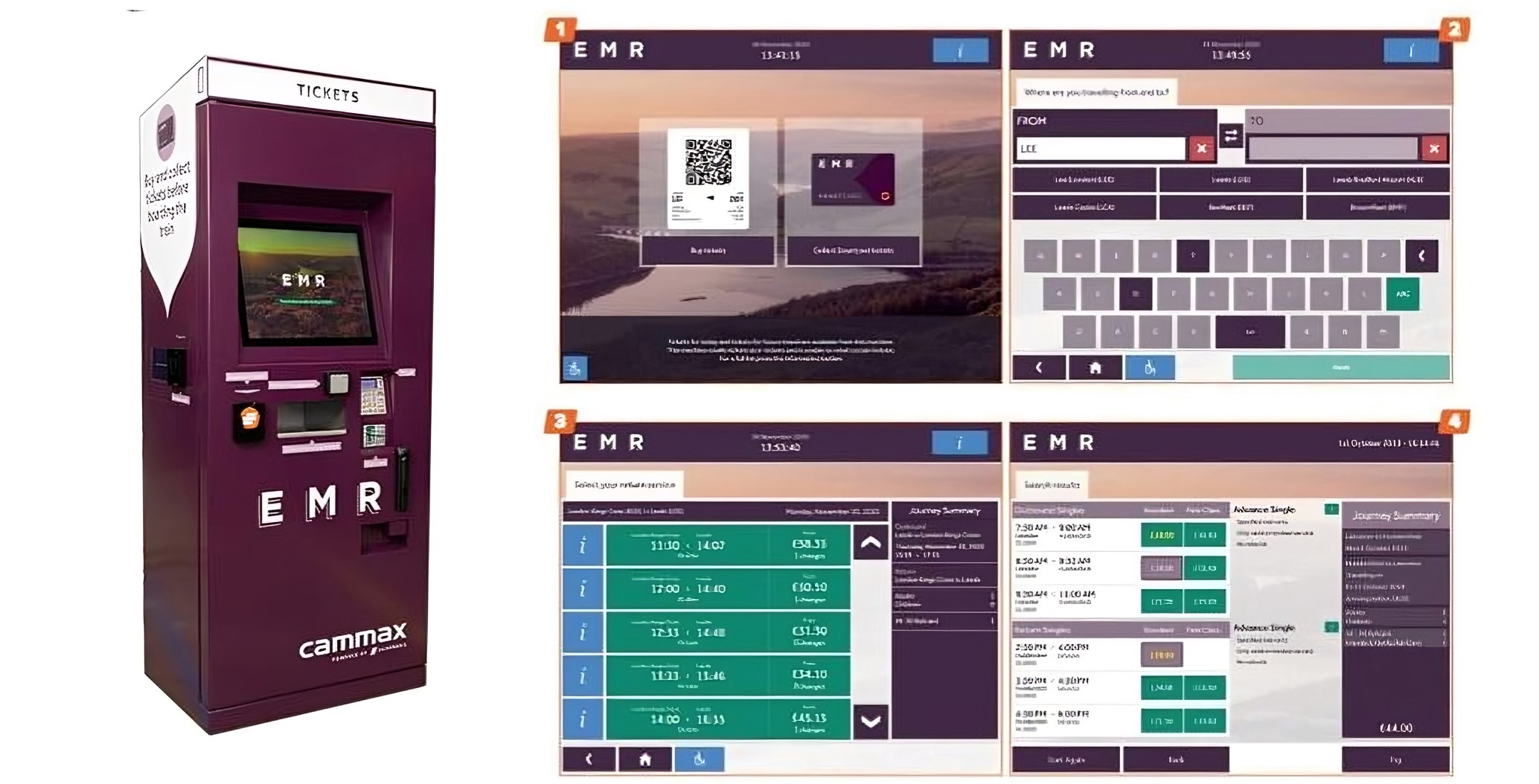
Rail ticketing is once again firmly in the spotlight following recent research by Which? that claims passengers buying a ticket at train station vending machines risk paying up to twice as much as online.
Consumer champion group Which? conducted a study by sending mystery shoppers to 15 stations, each managed by a different train operating company (TOC), comparing the prices of 75 journeys from a ticket machine with those available on the UK’s largest ticket site, Trainline. The mystery shoppers aimed to purchase the cheapest one-way ticket for travel on the same day, the following morning, and three weeks later.
The findings revealed that online fares were cheaper approximately three-quarters of the time, with same-day journeys costing an average of 52% more from machines. Some discrepancies were particularly notable, such as a same-day, one-way ticket from Holmes Chapel in Cheshire to London, which cost 154% more at the station’s ticket machine (£66) compared to the online price (£26 split-ticket option).
Similarly, a same-day, one-way ticket from Northampton to Cardiff cost £107 from the machine, 148% more than the online price of £43.
Which? also discovered significant variations in the services offered by different ticket machines, leading to restricted choices and, consequently, higher prices for passengers.
One major reason for the higher costs of machine tickets is the limited availability of ‘advance’ fares, which are cheaper tariffs for purchasing tickets in advance. Only five out of the 15 machines tested by Which? offered advance fares.
Some machines may also cause passengers to miss out on cheaper fares as they don’t seem to sell off-peak tickets during peak times, Which? claims. For instance, a mystery shopper at Hitchin found only an anytime single ticket priced at £133 for a journey that qualified for an off-peak fare. Online, the same journey could be booked for just £55 off-peak.
The study also revealed alleged issues with ticket validity, as machines often fail to clearly indicate the times and services for which certain tickets are valid. This lack of clarity, combined with the absence of timetable information on most machines, poses challenges for passengers planning unfamiliar journeys.
Rory Boland, Editor of Which? Travel, revealed his shock at the findings and urged passengers to book online to secure the cheapest fares.
He commented: “The price differences we found between booking online and using station ticket machines were simply astounding. Millions of tickets are purchased using ticket machines every year, meaning that huge numbers of us are potentially paying significantly more than we need to when we commute to work or visit friends and family across the country.”
“Wherever possible we’d recommend booking train tickets online for the cheapest options, but that won’t be possible for everyone. Significant numbers of elderly people don’t have internet access at all – leaving them with little choice but to run the gauntlet of ticket machines which either don’t offer the best prices, or make it difficult to find the appropriate fares.” He added.
According to a 2023 survey commissioned by award-winning travel technology provider SilverRail, nearly half (48%) of British people indicated that they prefer to purchase train tickets at the station rather than online or via an app.
This sentiment is even stronger (52%) among those who have never bought rail tickets before.
Additionally, official statistics reveal that one-third of all rail tickets sold, equating to around £2.8 billion in current revenue, are purchased at the station. This indicates strong demand for using ticket machines however, as the Which? research rightly implies, passengers are growing increasingly frustrated with outdated systems that are far from user-friendly, too complex, and lack both fair and clear pricing.
Recognising the need to deliver a solution that satisfies the evolving needs of modern passengers, Cammax, the UK’s leading supplier of Smart ticketing systems, has joined forces with SilverRail to develop a groundbreaking new system: the Smart Rail Ticket Vending Machine (TVM). This cutting-edge solution features SilverRail’s advanced Ticket Issuing System (TIS) ‘SilverCore’ and the company’s intelligent UK Journey planner (IPTIS). It aims to revolutionise the ticketing experience, addressing the issues and shortcomings identified by Which? while ushering in a new era of transparency and efficiency in rail travel.

The Smart Rail TVM provide passengers with a seamless, consumer-centric, and cost-effective alternative to the inadequate ticket machines currently found at a large majority of UK train stations. The Smart Rail TVM’s functionality and state-of-the art capabilities also directly address the concerns highlighted in the Which? research and provide several essential benefits to TOCs.
Which? Finding: Fares purchased online were cheaper around three-quarters of the time.
![]() Smart Rail TVM: With SilverRail’s Ticket Issuing System (SilverCore), the Smart Rail TVM ensures pricing consistency, mirroring the cost-effective nature of online purchases. Passengers are always presented with the cheapest fare option, fostering transparency and trust in the ticketing process.
Smart Rail TVM: With SilverRail’s Ticket Issuing System (SilverCore), the Smart Rail TVM ensures pricing consistency, mirroring the cost-effective nature of online purchases. Passengers are always presented with the cheapest fare option, fostering transparency and trust in the ticketing process.
Which? Finding: Different ticket machines offered varied services, leading to restricted choices and higher prices.
![]()
![]()
![]()
![]()
![]()
![]()
Which? Finding: Most machines fail to offer ‘advance’ fares, contributing to elevated ticket costs.
![]()
![]()
![]()
![]()
![]()
![]()
Which? Finding: Many machines lack timetable information, making planning unfamiliar journeys challenging.
![]()
![]()
![]()
![]()
![]()
![]()
Which? Finding: Passengers do not benefit from rail ticket discounts at existing ticket machines.
![]()
![]()
![]()
![]()
![]()
![]()
The UK rail sector is currently facing many challenging, not least how to overhaul tired and outdated ticketing systems that are clearly no longer fit for purpose. However, all challenges give rise to new opportunities and the Smart Rail TVM offer a promising glimpse into the potential of a ticketing solution that is not just functional but future-proof, ready to evolve with the ever-shifting tides of travel expectations.
TOCs, suppliers and other stakeholders must now work together in order to guide the rail industry toward a future where ticketing is not a challenge but an enabler of smooth and connected travel experiences.
For more information about our cutting-edge rail ticketing solutions please visit this page, check out our East Midlands Railway Case study, or get in touch with Cammax today!